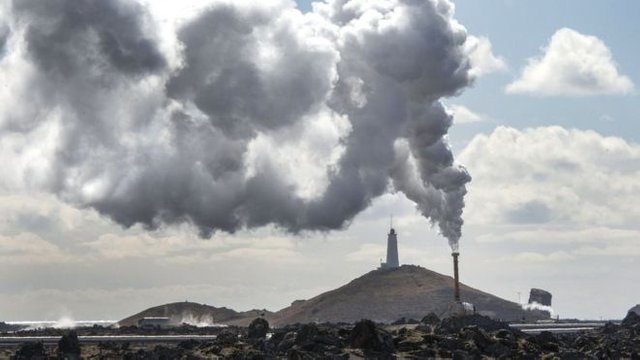Iceland is facing an "exponential" rise in Bitcoin mining that is gobbling up power resources, a spokesman for Icelandic energy firm HS Orka has said.

This year, electricity use at Bitcoin mining data centres is likely to exceed that of all Iceland's homes, according to Johann Snorri Sigurbergsson.
He said many potential customers were keen to get in on the act.
"If all these projects are realised, we won't have enough energy for it," he told the BBC.
Mr Sigurbergsson's calculations were first reported by the Associated Press.
Iceland has a small population, of around 340,000 people.
But in recent years it has seen a marked increase in the number of new data centres, often built by firms wishing to tout green credentials. Nearly 100% of energy in Iceland comes from renewable sources.
Bitcoin mining refers to the work done by computers connected to the global Bitcoin network.
These computers solve complex mathematical problems - a process that in turn validates transactions between users of the crypto-currency.
The computers that do this validation work receive small Bitcoin rewards for their trouble, making it a lucrative exercise, especially when done at a large scale.
'Exponential growth'
"What we're seeing now is... you can almost call it exponential growth, I think, in the [energy] consumption of data centres," said Mr Sigurbergsson.
He added that he expects Bitcoin mining operations will use around 840 gigawatt hours of electricity to supply data centre computers and cooling systems, for example.
He estimated that the county's homes, in contrast, use around 700 gigawatt hours every year.
"I don't see it stopping quite yet," added Mr Sigurbergsson, referring to data centre projects.
"I'm getting a lot of calls, visits from potential investors or companies wanting to build data centres in Iceland."
He also said that there are so many proposed data centres that it wouldn't be possible to supply all of them.
He added that his firm was mostly interested in dealing with companies that were willing to commit to long-term contracts of a few years or more.
If Iceland took on all of the proposed Bitcoin mining ventures, there simply wouldn't be enough electricity to supply them all, he added.
The crypto-currency mining industry in Iceland was recently given a boost thanks to the launch of The Moonlite Project - a large data centre where various crypto-currencies, including Bitcoin, will be mined.
It is set to open later this year and will have an initial capacity of 15 megawatts, though this is expected to increase in the future.
Some have questioned how beneficial the rise of the crypto-currency mining will be to Iceland.
Smari McCarthy, a member of the Icelandic parliament for the Pirate Party, tweeted: "Cryptocurrency mining requires almost no staff, very little in capital investments, and mostly leaves no taxes either.
"The value to Iceland... is virtually zero."
He also clarified previous reports that quoted him as saying he was keen to tax Bitcoin mining firms.
It has previously been reported that the electricity demand of the world's total combined Bitcoin mining operations may now exceed the energy use of the Republic of Ireland, though this calculation may not be entirely accurate.
But as crypto-currencies rise in popularity, mining operations certainly continue to use more and more resources - recent analysis of European energy use in 2017 by campaign group Sandbag noted that Bitcoin mining was contributing to additional power demand in the technology sector.
References>> http://www.bbc.com/news/technology-43030677